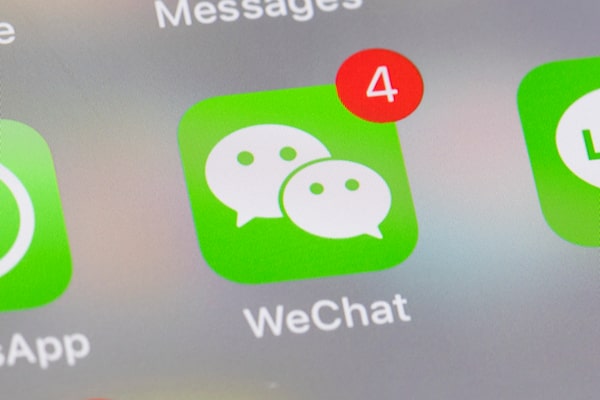
A smart phone with the icons for the social networking apps WeChat and others seen on the screen on June 29, 2018.S3studio/Getty Images
Beijing is protesting Canada’s decision this week to ban the popular Chinese-language application WeChat from federal government smartphones on privacy and security grounds, saying Ottawa has not provided evidence that the platform is dangerous.
In a statement provided to The Globe and Mail on Tuesday, the People’s Republic of China embassy in Ottawa accused Canada of discriminating against Chinese companies. WeChat is owned by Shenzhen-based conglomerate Tencent.
“This is a typical move of overstretching the concept of national security and abusing state power to suppress the companies of a particular country,” the statement says.
WeChat is the third Chinese technology brand that has seen its usage in Canada restricted by the federal government in about 16 months. Ottawa barred Huawei Technologies’s equipment from Canada’s 5G wireless network in May, 2022, citing national security and the need to safeguard the country’s telecommunications infrastructure. In February, Ottawa banned social-media platform TikTok from federal government devices, citing, like it did for WeChat, an “unacceptable level of risk to privacy and security.”
China’s embassy in Canada challenged Ottawa to justify Monday’s WeChat ban in its statement.
“The Canadian government, without providing any hard evidence, issued the ban against a Chinese company in the name of protecting data security,” it said. It noted that WeChat is run by a private company.
Privacy and security experts, however, have raised concerns about the Chinese government’s ability to pry into private companies in China. Article 7 of China’s 2017 National Intelligence Law says Chinese companies must “support, co-operate with and collaborate in national intelligence work” when asked.
The Canadian government has not provided evidence to back up its WeChat ban. When it announced the measure Monday, which affects both WeChat and Russia’s Kaspersky anti-virus products, Ottawa said the decision was “in line with the approach of our international partners.”
Asked to list which international partners banned WeChat from government devices, Treasury Board president Anita Anand’s department said it was talking about Kaspersky in that case. It could not identify a country that had banned WeChat from government devices.
“The US banned Kaspersky in 2017. Australia is also exploring a ban of WeChat based on the recommendations provided in their Senate Select Committee on Foreign Interference through Social Media,” Treasury Board spokesperson Martin Potvin said in a statement Tuesday.
A number of U.S. state governments have reportedly banned WeChat and other Chinese tech applications. In 2021, the Indian government made a ban on any usage of more than 50 Chinese applications permanent, including WeChat and TikTok.
Ronald Deibert, director of Citizen Lab, a Toronto internet-security and human-rights organization, said the ban appears to be prudent given his group’s research. He said Citizen Lab has found that “the accounts of international WeChat users are under surveillance and that data-sharing practices on the company side are opaque and subject to broad cybersecurity laws in China, which put all WeChat users at risk of government surveillance.”
A 2020 Citizen Lab report found WeChat communications conducted entirely among non-China-registered accounts are “subject to pervasive content surveillance that was previously thought to be exclusively reserved for China-registered accounts.”
Conservative foreign affairs critic Michael Chong said the Official Opposition backs the federal government’s decision to bar WeChat.
“Conservatives believe the security of government data and information is paramount. We trust the work done by Canadian security officials in determining the need to remove WeChat from government devices and we support this move,” he said in an interview Tuesday.
WeChat was used to target Mr. Chong in May, according to a report released earlier this year by the Global Affairs Canada unit responsible for tracking disinformation. The government said the information operation on the platform “amplified a large volume of false or misleading narratives about Mr. Chong,” who has frequently raised concern about Chinese state foreign interference in Canada as well as Beijing’s repression of Uyghurs and its crackdown on Hong Kong.
 Steven Chase
Steven Chase